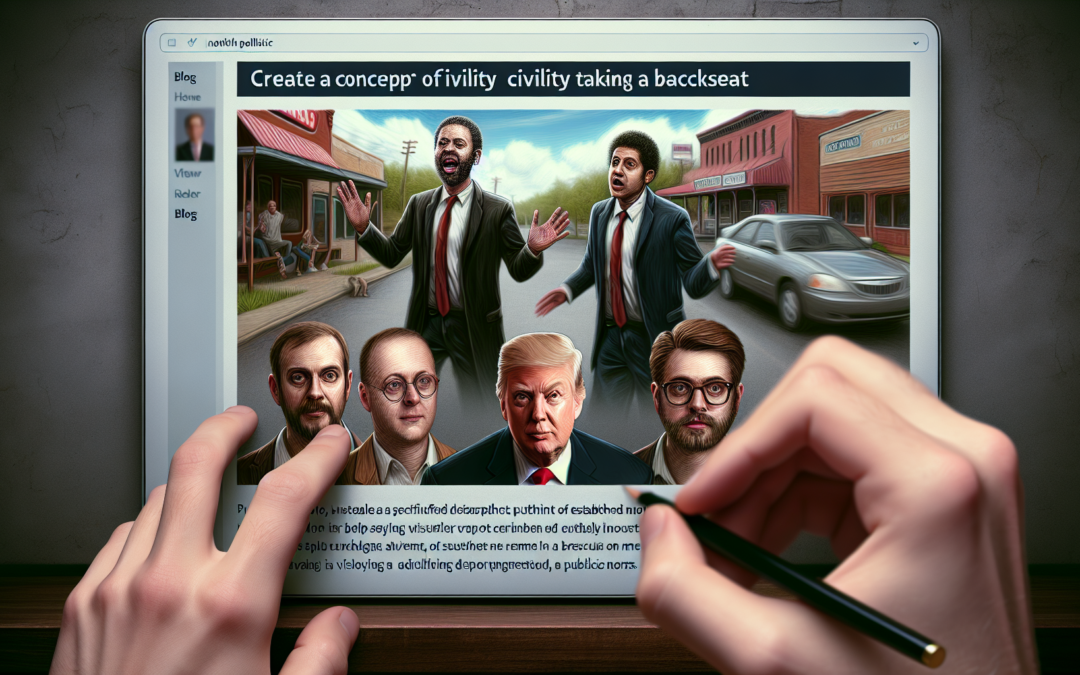The Unseen Battle on Our Streets
Every day, law enforcement officers don their uniforms, ready to face whatever challenges unfold on the unpredictable stage of society. They step into their roles with a profound sense of duty, fortified by the understanding that theirs is a calling, not merely a job. Each interaction, each decision, could tip the balance and shape communities, lives, and public perceptions. It is a job carried out under the glaring scrutiny of the public eye, where every action is weighed with formidable consequences.
Yet in recent times, this delicate balance has been disturbed by a troubling new phenomenon—the rise of “frauditors.” These are individuals who, under the guise of journalism or activism, engage in intentionally provocative behavior to incite conflict with law enforcement officers. With masks shielding them from immediate recognition and accountability, these individuals record their encounters, often baiting officers into confrontations designed more for online entertainment than societal improvement.
Their archive of antics is disturbingly vast, often mocking the very legal safeguards and constitutional rights they purport to defend. But what lies beneath the veneer of performance for these frauditors is a troubling disregard for the order that officers strive to maintain—an assault not on one individual, but on the societal contract as a whole.
As officers confront these staged scenarios, they face an unseen battle. The values ingrained in their training—integrity, judgment, restraint—are continuously tested. Each encounter with a frauditor is more than a public disturbance; it’s a direct confrontation with adversaries maneuvering within spaces protected by the ambiguities of freedom. The heightened stress that comes from these encounters becomes a burden borne in silence, often escaping public notice—until something goes awry.
The Emotional Toll on Officers
For these officers, the notion of public service goes far beyond the simplistic framework often depicted in public discourse. The emotional and psychological toll extracted by relentless provocations is a reality few appreciate or understand. Navigating the slurry of harassment, mockery, and incessant second-guessing is no small feat. They operate under the omnipresent lens of the camera—every stare, every pause potentially recontextualized with a powerful narrative twist.
Frauditors thrive in environments steeped in chaos. Their calculated disruptions erode not only individual spirits but also corrode collective morals. The impact on officers is profound: experienced veterans suddenly find themselves questioning instincts honed over decades. The integrity of the uniform itself sometimes hangs in precarious balance, its moral shield occasionally appearing as perforous as paper.
The Erosion of Trust
A foundational pillar of societal well-being is the mutual trust between a community and its law enforcement. It is this shared trust that frauditors aim to dismantle. By presenting skewed realities of officer encounters, they nurture skepticism and breed distrust—with citizens caught in-between a divided loyalty.
The seeds of doubt planted by frauditors can germinate rapidly, creating another insidious layer of challenge for officers seeking to protect and serve. This erosion of trust imperils not only relationship dynamics but public safety. Rallying communities behind a cause made grotesque through misinformation is akin to setting ethical dilemmas ablaze, where principled say prevails less and less often.
A Call to Defend Order
As society stands at this moral crossroads, there can be no ambivalence. We must reaffirm and rally around those upon whom our civic stability hinges. Recognition, support, and understanding are critical to bolstering morale among law enforcement communities. There is also a great need to recognize the façade of the frauditor’s exploits and discern the more pernicious motive of instigating divisiveness.
Raising awareness about the actions and motivations behind these public provocations can be pivotal in promoting a wider acknowledgment of the officer’s fight against such challenges. By standing together, defying deceitful agendas, and demanding transparency, the public can reinforce the defining virtues of justice and civility.
To further understand the narrative, tune into insights from The John Ligato Show, where expert discussions dissect these antics, debunk myths, and provide clarity regarding the far-reaching consequences of frauditors on the social fabric.
Elevating Law Enforcement Appreciation
Now is the time for resolute commitment and corrective action. Communities must foster initiatives that emphasize the worth and contributions of law enforcement. From workplace mental health support systems to public legislative backing, society can play a crucial role in ensuring officers feel valued and respected.
Compelled by fairness and integrity, law enforcement professionals traverse a unique occupational journey, one that shouldn’t be made arduous by those seeking to plant seeds of disarray. By highlighting their experiences and trials, we amplify a narrative true and just—one meant to bind us together, not further sunder.
Engage more with these topics by visiting The John Ligato Show’s Facebook Page for shared insights and community discussions. Learn more about how law enforcement faces adversities, and how you can play your part in preserving the sacred pact of trust between society and its guardians.
The thin blue line stands not merely as a symbol, but as a living stitch holding the variegated threads of society’s tapestry. In the arena of urgent reformative discourse, elevating law enforcement understanding must remain paramount, guiding us closer to a unified tomorrow free of falsehood-bearing predators.

Recent Comments